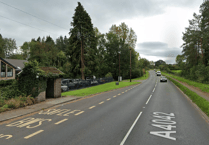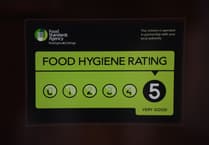For the some 12,000 people that live in Caldicot, and Rogiet, which adjoins its western approach, these may be names they pronounce multiple times a day when giving addresses or answering questions.
But, when giving their address, how should they – or how do they – pronounce Monmouthshire, the county which includes the stretch of the M4 motorway both communities sit to the north of as it extends across the Severn estuary via the the Second Severn Crossing, Prince of Wales Bridge?
Is there an emphasis on the ‘a’ at the start of Cal – dicot or should the first syllable be pronounced ‘Cul’ – similar to cul-de-sac?
Many may pronounce the names without giving them a second thought – but it is a hot issue for Caldicot native Armand Watts.
The Labour councillor interrupted the county council’s debate on its annual budget, of more than £200 million, to pull up an unnamed Conservative councillor on pronunciation.
Cllr Watts, who represents the Bulwark and Thornwell ward in nearby Chepstow, had finished his contribution to the budget debate and then admonished others on pronunciation.
He said: “The other thing I say, I’m sorry, it’s the pronunciation of our own towns. It’s one I’ve noticed before. One of the Conservative members referred to Caldicot as, and I’m from Caldicot, as Cul-dee-cot. I know Rogiet, is Rog-it, but I’m sure if it’s a question for the chief executive Mun-mouthshire is Mon-mouthshire. Sorry if you think that’s being a bit…”
At that point council chair Laura Wright cut across and told him: “Cllr Watts, this isn’t relevant, move it on.”
Cllr Watts, whose pronunciation of Caldicot stressed the ‘a’ so as to sound like ‘Cal-dee-cot’, replied: “Well I do think it is chair, thank you.”
Though the chief executive wasn’t required to respond Conservative member for Osbaston, near Monmouth, Jane Lucas said she found Cllr Watts’ comments “offensive”.
The driving examiner, who said she’d also worked as a professional horse rider, said she was “slightly nervous” to raise the issue as she is dyslexic.
She said: “I’ve heard Cllr Watts this afternoon berate someone for the way in which they speak. I find that offensive for more than one reason.
“Firstly as I am a severe dyslexic, I find this particularly nervous, yes I do not pronounce everything in the manner that some people might. In my own working life I have been ‘verbated’ in writing, on reports, for the way in which I speak. I asked does that mean, because I’m well spoken, that someone else is un-well spoken, what does that mean? So Cllr Watts, I’m sorry I take offence by that statement.
“Because I don’t have an accent, and someone else does, does that make it any better or any worse what they are saying?”
When Cllr Lucas said she found the comments offensive “for more than one reason” Cllr Watts, who was taking part in the meeting via video link, could been seen on screen waving his hand as if ushering away the criticism and he appeared to roll his eyes when he was mentioned a second time.
Immediately before making his comments on pronunciation Cllr Watts had said calls from Conservative councillors for a council volunteering scheme, for activities such as litter picking, were a “noble idea” but unrealistic.
He said: “For working class people particularly in the ward that I represent, across the south, the semi-urban areas those people are running two or three jobs, they haven’t got time to volunteer.”





Comments
This article has no comments yet. Be the first to leave a comment.